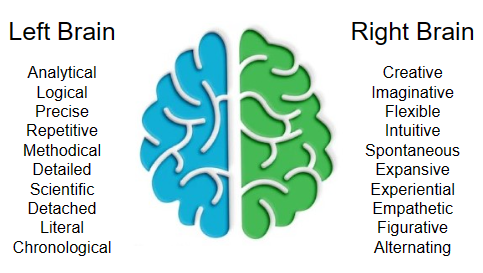The Computer Mind
The mind can be likened to a computer database of memory files from birth to the present. Information and images project themselves within the mental movie screen of our minds, influencing a significant portion of our conscious decision-making.
Largely unaware of this subconscious process, we believe objective, informed decisions are part of everyday life, but are they? Studies show the mind is hardwired to constantly scan for 'perceived' danger as part of the brain’s limbic (reptilian brain) system. Recalling memories and comparing current situations as either safe or a potential threat. This data processing works so fast we're barely aware of it.
This brain function may have been useful thousands of years ago when hunting in the wild. Our modern-day life has replaced T-rex for the boss, work colleague, or family member.
Modern societal stressors leave little opportunity to dispel the fight-flight hormones accumulated during a stressful meeting with the boss or disagreement with a colleague or family member.
Unable to manage and process difficult situations results in the stress hormones circulating in the body for hours, sometimes days or weeks. The long-term, physical and mental effects creep up on us as the silent manifestation of what we've suppressed or ignored.
Acknowledging how the mind processes the external environment may be helpful. However, learning to spot the triggers and repetitive patterns facilitates working with the stressors rather than avoiding them.
In simple terms, the brain processes thoughts primarily through the left and right hemispheres. Paradoxically holding complimentary & opposing thoughts simultaneously.
Understanding how to work with often opposing or conflicting thoughts appears to be a critical factor in establishing self-awareness intrinsic to mental health and agility.
Below is a summary of how thoughts are categorised:

Societal conditioning leans heavily towards left-brain thinking, i.e. problem-solving, analytical thinking, planning, and a desire to create safety. Less focus is given to right-brain thinking, i.e. creativity, intuition, feelings/emotional responses.
Neglecting the intuitive and creative functions of the right brain while concentrating mainly on left-brain activities can result in increased stress, fatigue, and burnout.
Explore the following article: The Mind Thief - Repetitive Thought Patterns.
Why do repetitive thoughts rob us of precious time?
How to identify repetitive thoughts?
Learn why reframing thought patterns reduces rumination.
Think of it as a computer reboot for your brain!